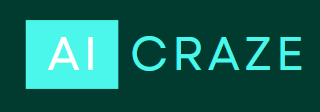
Artificial intelligence (AI) is revolutionizing the workplace, bringing forth numerous benefits and impacting various aspects of business operations. With its ability to automate tasks, analyze data and enhance decision-making processes, AI is becoming an indispensable tool for organizations across industries. In this article, we will explore the benefits of Artificial intelligence in the workplace, examine examples of its applications, discuss the pros and cons, analyze its negative effects and look into the future prospects of AI integration.
In the realm of computer systems empowered by artificial intelligence, the extraordinary capability to undertake tasks traditionally necessitating human cognitive faculties emerges. These systems are designed to simulate human cognition, learn from data and make informed decisions. In the workplace, AI is transforming the way businesses operate by augmenting human capabilities and improving overall efficiency.
What are the Benefits of Artificial Intelligence in the Workplace
There are many benefits of Artificial intelligence in the workplace. A few of them are given below:
- Increased efficiency and productivity
One of the significant benefits of Artificial intelligence in the workplace is the increased efficiency as well as productivity it offers. AI-powered systems can perform tasks at a faster pace and with higher accuracy, allowing employees to focus on more complex & strategic responsibilities. This is the benefit of artificial intelligence in workplace.
- Automation of repetitive tasks
Automation of repetitive tasks is another advantage of AI. Mundane and time-consuming activities can be automated, freeing up employees’ time for more creative and value-added work. This not only increases productivity but also reduces the risk of human error. This is the benefit of artificial intelligence in workplace.
- Improved decision-making and data analysis
Organizations can make better judgments because of AI’s capacity to swiftly analyze enormous volumes of data. Artificial intelligence (AI) systems can spot patterns, trends and insights that people would overlook using complicated algorithms as well as machine learning approaches. Businesses may make proactive decisions and stay competitive by using data-driven decision-making. These are the important benefits of ai technology.
- Enhanced customer experience and satisfaction
By leveraging AI, organizations can enhance customer experience and satisfaction. AI-powered chatbots along with virtual assistants can give instant as well as personalized support to customers, improve response times and ensures round-the-clock availability. This is also the benefit of artificial intelligence in workplace.
- Streamlined communication and collaboration
AI facilitates streamlined communication and collaboration within teams and across departments. Intelligent systems can automate workflows, facilitate information sharing and enable real-time collaboration, leading to increased efficiency and productivity. These are one of the best benefits of ai technology.
Examples of AI in the Workplace
There are many examples of AI in the workplace. A few of them are given below:
- AI-powered chatbots and virtual assistants
AI is already making significant strides in various domains within the workplace. AI-powered chatbots and virtual assistants are being employed in customer service to handle inquiries, provide recommendations and assist with issue resolution. These advanced systems can comprehend spoken language, pick up new skills through experience and constantly refine their responses. This is one of AI in the workplace examples.
- Machine learning algorithms for data analysis
Machine learning algorithms are being used to analyze vast datasets and extract valuable insights. This enables organizations to gain a deeper understanding of customer behavior, market trends and operational inefficiencies, leading to data-driven decision-making and improved business outcomes.
- Intelligent automation in manufacturing and logistics
In sectors like manufacturing and logistics, intelligent automation powered by AI is transforming operations. Robots and autonomous vehicles are being deployed to perform tasks such as assembly, inventory management and delivery, resulting in increased speed, accuracy and cost-effectiveness. This is one of the main AI in the workplace examples.
- AI-driven personalization in marketing and customer service
AI is also driving personalization in marketing and customer service. By analyzing customer data, preferences and behavior, organizations can deliver targeted and personalized experiences, improving customer satisfaction and loyalty. This is one of the best examples of AI in the workplace.
Pros and Cons of AI in the Workplace
There are many Pros and Cons of AI in the workplace. A few pros and cons of artificial intelligence in the workplace are given below:
Pros:
- Increased accuracy and reduced errors
AI offers several advantages in the workplace. Firstly, it enhances accuracy and reduces errors by eliminating human biases and fatigue. This leads to improved quality control and operational efficiency.
- Time and cost savings
Time and cost savings are significant benefits of AI. Automated processes and AI-driven systems can perform tasks more quickly and at a lower cost compared to traditional methods. This efficiency translates into substantial savings for businesses.
- Ability to handle large volumes of data
AI’s capability to handle large volumes of data is invaluable in today’s data-driven world. It enables organizations to process and analyze massive datasets efficiently, extracting valuable insights and supporting informed decision-making.
- Improved safety and risk management
AI can also contribute to improved safety and risk management. For instance, AI-powered systems can monitor and detect anomalies in real-time, alerting organizations to potential risks and enabling proactive intervention.
Cons:
- Job displacement and workforce changes
There are also cons associated with AI implementation in the workplace. One major concern is job displacement and workforce changes. As AI automates tasks, some jobs may become obsolete, leading to workforce restructuring and the need for upskilling and retraining programs.
- Privacy and ethical concerns
Privacy and ethical concerns arise with the increased use of AI in handling sensitive data. Organizations must ensure robust data protection measures and transparent data usage practices to address these concerns.
- Potential Biases in AI Algorithms
If AI algorithms are taught on biased datasets, they may likewise display bias, producing unfair or discriminating results. It is crucial to address this issue by employing diverse and representative datasets and implementing fairness measures in algorithm design.
- Dependence on technology and potential vulnerabilities
Lastly, dependence on technology and potential vulnerabilities are risks associated with AI. Organizations need to maintain a balance between human expertise and AI capabilities while also considering potential cybersecurity threats.
Negative Effects of Artificial Intelligence in the Workplace
There are also Negative Effects of Artificial Intelligence in the workplace. A few of them are given below:
- Impact of artificial intelligence in Employment and the job market
As we know AI brings numerous benefits, but it also has negative effects on the workplace. One of the significant concerns is the impact of artificial intelligence in employment and the job market. As AI automates tasks, some jobs may become redundant, leading to job losses and changes in the labor market dynamics.
- Challenges in Retraining and Upskilling the Workforce
Retraining and upskilling the workforce present significant challenges. Organizations must invest in reskilling programs to ensure employees can adapt to the changing demands of AI-driven workplaces. This requires a commitment to lifelong learning and continuous professional development.
- Potential for job dissatisfaction and burnout
Another negative effect of AI is the potential for job dissatisfaction and burnout. Increased automation and reliance on AI systems can lead to employees feeling undervalued or overwhelmed, resulting in decreased job satisfaction and mental health issues.
- Social and economic implications
The widespread adoption of AI also has social and economic implications. It can exacerbate income inequality and contribute to the digital divide if not implemented inclusively. Policymakers and organizations need to address these challenges to ensure a fair and equitable distribution of the benefits brought by AI.
The Future of Artificial Intelligence in the Workplace
- Emerging trends and advancements in AI technology
The future of AI in the workplace holds tremendous potential for further advancements. Emerging trends such as explainable AI, federated learning and edge computing are shaping the development of AI technology. These advancements aim to enhance transparency, privacy and efficiency in AI systems.
- Integration of AI with other emerging technologies
Integration of AI with other emerging technologies like blockchain, Internet of Things (IoT) as well as augmented reality (AR), will open up new possibilities for innovation and transformation. The synergy between these technologies can revolutionize various industries by enabling seamless data exchange, real-time analytics and immersive experiences.
- Implications for job roles and skills required
The integration of AI will also have implications for job roles and the skills required in the future workforce. As AI takes over repetitive and mundane tasks, there will be a shift toward jobs that require creativity, critical thinking and emotional intelligence. The workforce will need to develop skills such as problem-solving, adaptability and collaboration to thrive in an AI-driven environment.
- Ethical Considerations and Responsible AI Implementation
Ethical considerations and responsible AI implementation are crucial for the future of AI in the workplace. Organizations must ensure that AI systems are designed and deployed ethically, with transparency, fairness and accountability. Addressing biases, protecting privacy and promoting inclusivity are essential aspects of responsible AI adoption.
Conclusion
In conclusion, artificial intelligence brings significant benefits and impacts to the workplace. It enhances efficiency, automates tasks, improves decision-making and enhances customer experience. However, there are challenges such as job displacement, ethical concerns and potential biases. The future of AI in the workplace holds tremendous potential with emerging trends, integration with other technologies and implications for job roles and skills required. It is essential to adopt a balanced approach that maximizes AI’s potential while addressing concerns to create a future where humans and AI work together synergistically.
FAQs
What is an intelligent workplace?
An intelligent workplace refers to a work environment where artificial intelligence is utilized to enhance efficiency, automate tasks and improve decision-making processes.
How artificial intelligence is changing the workplace?
Artificial intelligence is changing the workplace by increasing efficiency, automating repetitive tasks, improving decision-making, enhancing customer experience and facilitating better communication and collaboration among teams.
What are the benefits of Artificial Intelligence?
The benefits of AI in the workplace include increased efficiency and productivity, automation of tasks, improved decision-making, enhanced customer experience and streamlined communication and collaboration.
Are you prepared for artificial intelligence in the future workplace?
Yes, I am prepared for the integration of artificial intelligence in the future workplace. AI has the potential to transform businesses, increase productivity and address societal challenges. It can automate tasks, provide intelligent insights and enhance decision-making processes. However, with the introduction of AI, there will be transitions and changes in the nature of work. It will be important for leaders and organizations to adapt their workforces, invest in reskilling and explore new models of education and lifelong learning. The allocation of resources and compensation may also need to be adjusted as tasks are reorganized and new skills become valuable.
How is artificial intelligence used in the workplace?
Artificial intelligence is used in the workplace in various ways, such as AI-powered chatbots for customer service, machine learning algorithms for data analysis, intelligent automation in manufacturing and logistics and AI-driven personalization in marketing and customer service.
When did artificial intelligence was introduced in the workplace?
Artificial intelligence was introduced in the workplace over the years, with its adoption and integration gaining momentum in recent times. The exact timeline of its introduction varies depending on the specific applications and industries.

